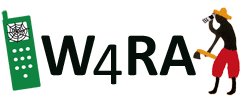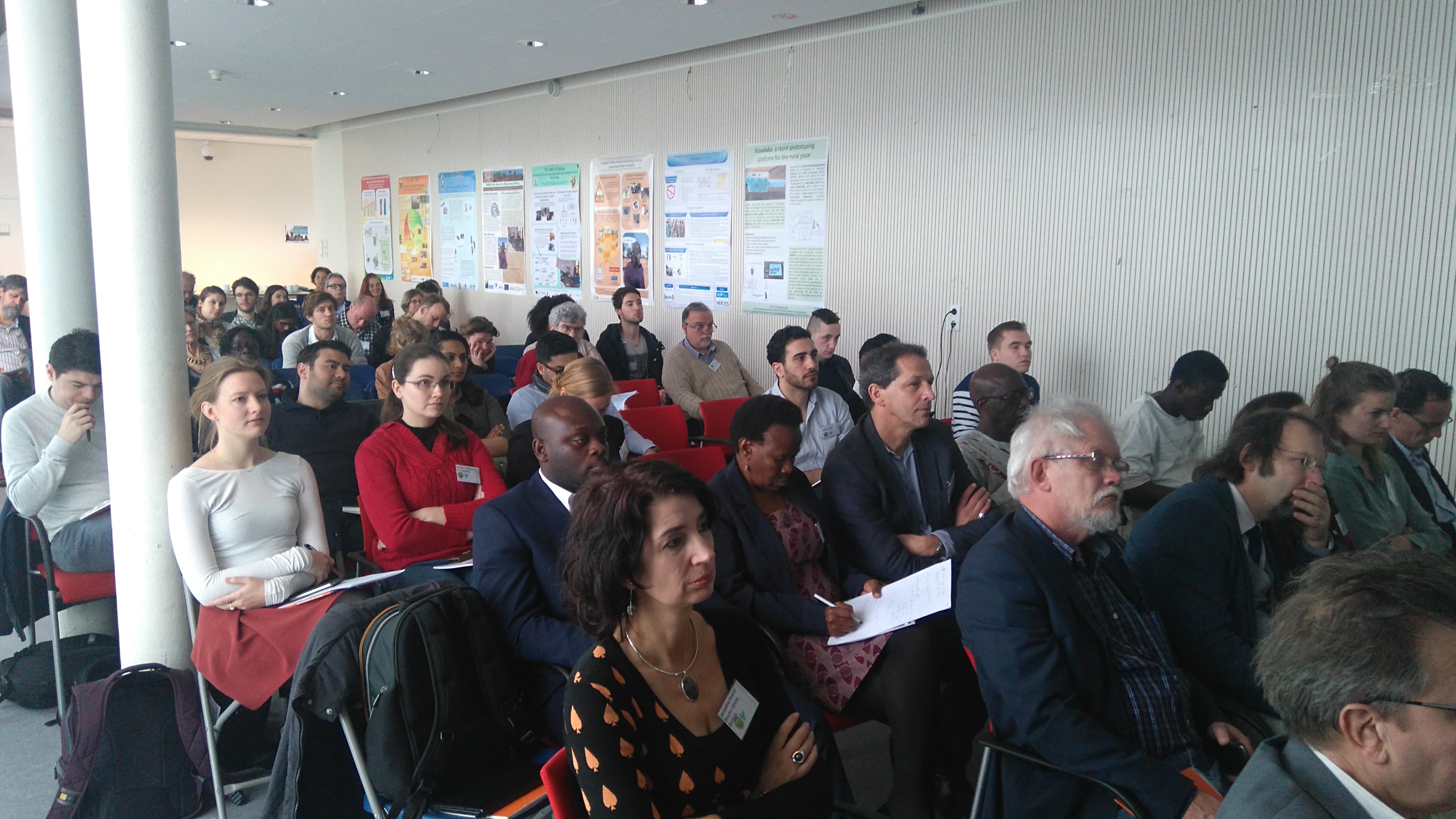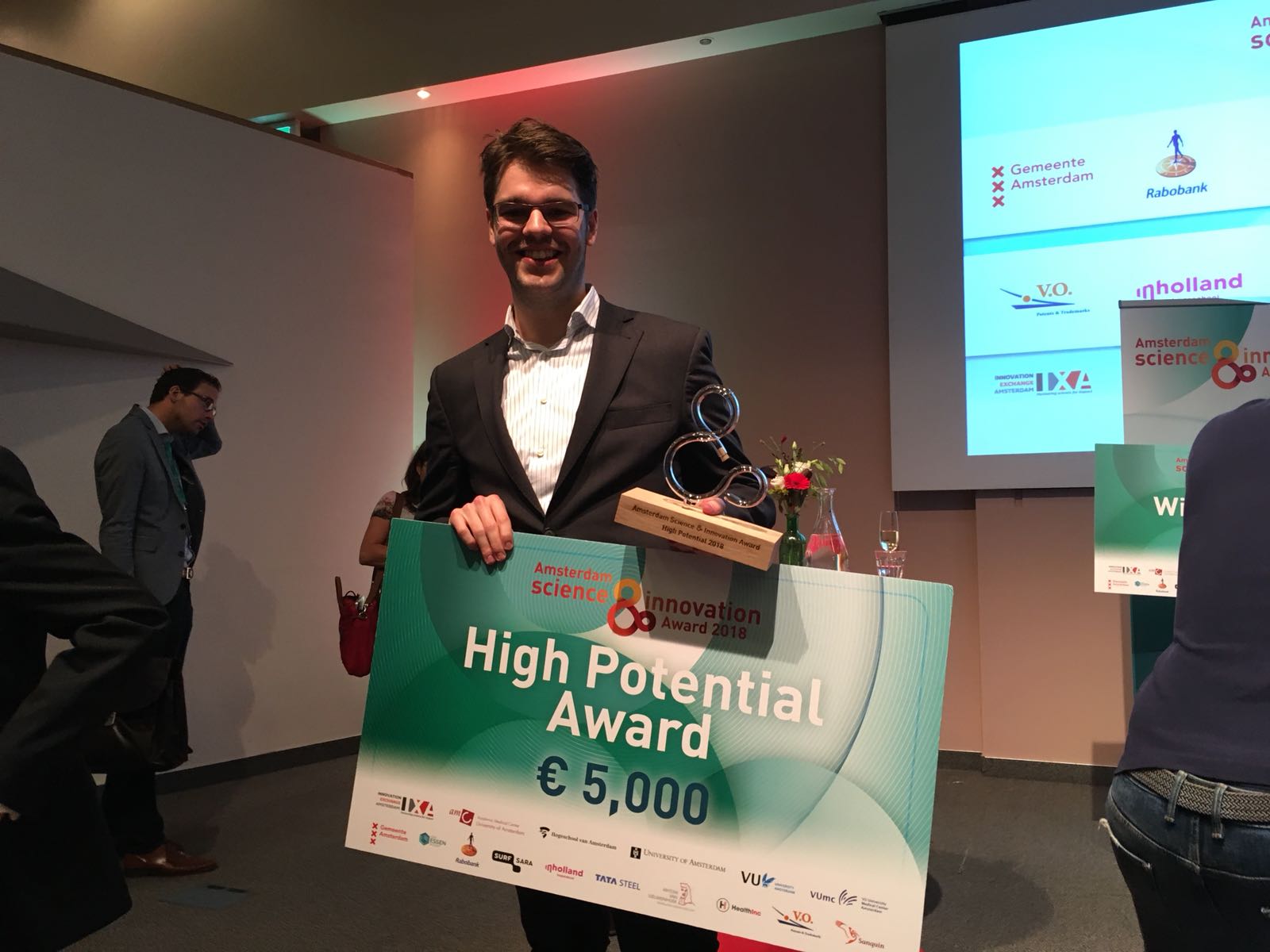Thesis defence Anna Bon Maastricht 15 December 2020 – a promotion in Corona times
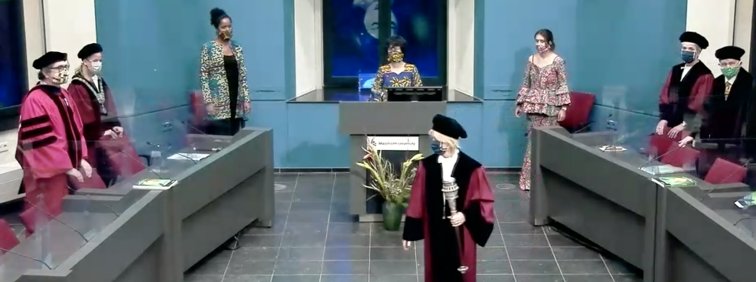
The Pro-Rector, Prof. Dr. Christine Neuhold chairs the public defence, and opens the reunion at 13h. After Anna’s presentation of 15 minutes, the opposition is opened.
Prof. Wiebe Bijker, emeritus professor of Technology and Society at Maastricht University.
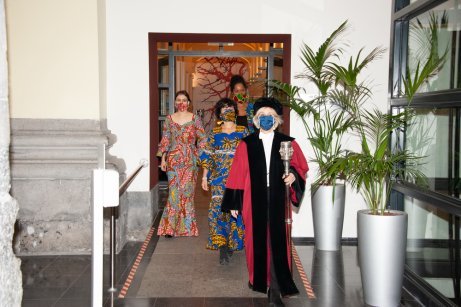
Prof. Dr. Wiebe Bijker: Thank you, Ms. Rector. Dear candidate, let me start with congratulating you with what we have in front of us. There are many positive things to be said about it, but I am particularly impressed by how coherently the whole argument is presented. And no one would be surprised until they realize that you have actually carried out very different externally funded projects. All of us know how difficult this is, and how projects are guided by their internal logic and how difficult it is to line them up and use them to build one coherent project. So I am very impressed by that and it is a beautifully produced book.
I would like to discuss with you indigenous knowledge. You make a very clear plea, very convincing, that it is important to take into account indigenous knowledge. I completely agree, but I would like you to reflect on one specific bit of that. You cite some of my work, where I worked in India with Indian farmers, where we tried to do the same. But I think we had an easier situation than you had. We were investigating alternative ways of farming and then evidently you should listen to what farmers know, their innovation power, their experience, their knowledge. In your case you are designing new ICT projects, so I am wondering how their indigenous knowledge (now I am talking about the farmers you interacted with), how their knowledge relates to the design of new software. Don’t you end up, although you don’t want it, in an asymmetyrical situation, where you, in the end, and your white rich colleagues from the North bring the technologies to Ghana, Mali. And then the nice symmetry that you sought, is slipping through your fingers.
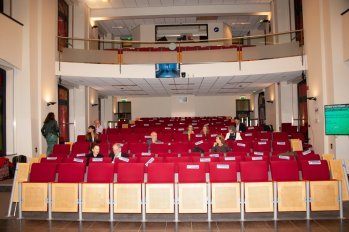
Anna: Highly esteemed opponent, I also think indigenous knowledge is very difficult because it is so different from what we do. However, for ICTs you always want a context to do it in. So for example, one of our projects is about rain. Farmers want to know when it is going to rain, for their crops. So it is very important to have a weather forecast. But they also have weather forcasts themselves. They know for example, when this bird is singing, or when you see that flower blooms, it is going to rain. So they have indigenous knowledge, and there is also the weather forecast from the meteorological service. Our task is simply to make that all available, for example through voice technologies. Also, people want to know something that is locally available, for example the price of a certain product, the quality of a seed. Or people need to sell their honey, but we do not know if this is packed in bags or it is sold in kg or in liters. These are all things that we have to ask them, in order to build a good system, and we have to do it collaboratively. One part of the indigenous knowledge is the indigenous language. We have to translate our system into Bambara for example, a Malian language, but we don’t speak Bambara, so we have to sit with somebody who speaks it, so we make a translation and audio record that, together. So, the inclusion of the indigenous language in our system is very natural. It does not make a difference with any other type of knowledge.
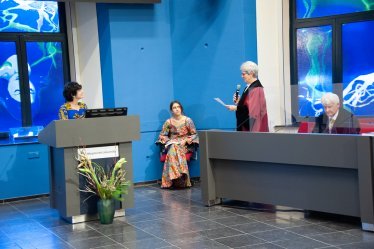
Prof. Wiebe Bijker: Just to check: so the farmers do not feel a tension that the design choices are not made by themselves?
Anna: The farmers we work with in Mali are interested in this type of technology because they want to sell their seeds. At this moment we are working on a seed system and the farmers want us to build that in ICT. They are not interested in the ICT system itself but they want it to work. And we are trying to make that work, and their knowledge is leading us.
Prof. Dr. Adele Botha – professor in Industrial Engineering at Stellenbosch University in South Africa.
Prof. Adele Botha: First I would like to acknowledge the candidate, the supervisors and my fellow academics and of course my brother from the far North of our beautiful continent. I also like to acknowledge the team of this intervention. It has been my privilege to work with the team in some of these projects, and I would like to acknowledge the humbleness and the respect with which the candidate and her team have engaged with the people and with their problems. First of all congratulations on a wonderful product and something to be proud of. I know this is the result of a lived experience and the passion you have put in it for many, many years, together with an investment in people’s lives or a testament to yourself and definitively an asset to the university and your supervisors.
I would like you to take a step back, reflecting on your thesis and your arguments around the actual operationalization of ICT4D, about what your notion of development is, and if you could reflect, from a personal and methodological and domain perspective, on development as an intervention to better.
Anna: Highly esteemed opponent, if I understand your question well, you are asking me to reflect on the interventionist aspect of development cooperation. Is that correct?
Prof. Adele Botha: After your lived experience, when you turn around and you are talking about “development” , how do you reflect on that personally and from a methodological perspective, as well as from a domain perspective?
Anna: Highly esteemed opponent, from a personal perspective, I can say that I have worked since 2006 as a practitioner in International Development Cooperation and I have carried out many projects that were not research-related. To start with: capacity building projects where there was always an ICT component in it and there was always a transfer-of-technologies component in it. I was in charge of making the network available and also the Internet. In 2006, Internet access was still a big problem there, especially in rural areas, but also at universities. Then I became aware of the approach in International Development Cooperation of transfer-of-technologies and transfer-of-knowledge, but there was no aspect or notion of innovation or co-creation. I was only in charge to implement technologies that were built in the Global North. And then I noticed, when I talked to colleagues, that no one found this strange. So, the whole atmosphere in International Development Cooperation is very much based on this idea of superiority of western knowledge and technology. When people think if innovation, they think only of high-tech innovation. They never think of innovation in a rural area. So it is very difficult to break that paradigm and to introduce methodologies that are different, that are agile, that are collaborative. People can simply not imagine that you can work for example with farmers in Mali, and call this “research”. Even in my university people find it strange that you involve farmers as co-researchers, and that they are even co-authors of our papers, because their knowldege is important, and without them the ICT system could not be designed. So, that aspect of collaboration is new, and also the methodologies that come with it are new in International Development Cooperation, and that is what I try to introduce. But it is very difficult because people still think it is strange. I hope this answers your question?
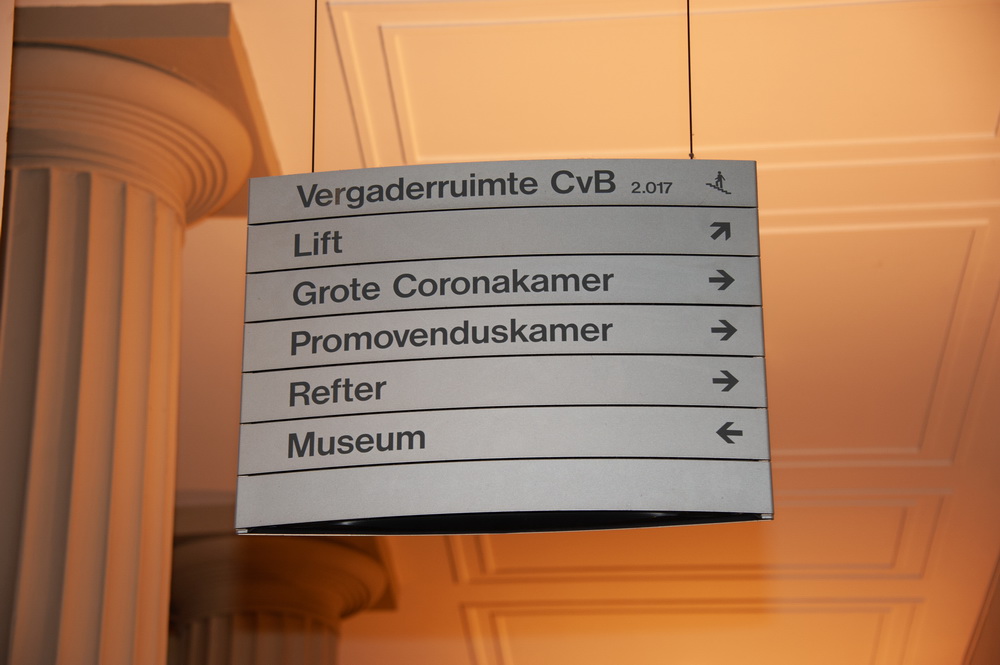
Prof. Adele Botha : Yes thank you, it does, which actually reflects on my following question, that you already answered in this reframing that you have put on the table, what your implementation would be outside of the Sahel area, but you already answered that, thank you. And my last question, with the pressure around the post-industrial revolution put into Africa and the advantages which are not always a reality, given the reality in Africa, what would your alternative to this paradigm be, around the post-industrial revolution for the developing world? With the post-industrial revolution pressed on Africa, what would be your answer, going forward to the developing context?
Prof. Adele Botha: Yes it does.
Prof. Dr. Roel Wieringa – emeritus professor of Information Systems from the University of Twente:
Prof. Wieringa: Thank you Mrs. Rector. Dear Candidate, with great pleasure I read your thesis, very thoroughly and I admire the way you put together the enormous bundle of different experiences in one overall structure and your methodology. But of course I have many critical questions. The first one is a very brief one:
Bottom-up innovation is never innovative, I think. You have the famous statement by Ford: “If I would have asked people what they wanted, they would have asked for faster horses”, so, how can a collaborative approach be innovative?
Anna: Highly esteemed opponent, this is a very challenging question, which I am happy to answer. First of all, I don’t agree with you that bottom-up innovation is not innovative at all. I have examples of farmer innovation, and I think that Mr. Chris Reij, who is here in the audience, can tell you more about farmer innovation, which is extremely innovative, but which has never been recognized as such, because it is low-tech. On the other hand, I agree with you, that if you ask a group of people if they have ideas, just randomly, they usually do not have. So I agree with you that bottom up innovation is difficult, but there are innovators everywhere. Some people, in rural Africa for example, without a formal education, can be sometimes extremely innovative, while sometimes you meet people with an academic education, who are not innovative at all. So, it is good to find these innovators. So I think that bottom-uo innovation is possible, but it is a matter of talking to people and finding people with an innovative mindset. It is more related to mindset and what people want to achieve and to good ideas, than it has to do, per se, with having a formal education or of being part of a very high-level/high-tech environment. I hope that this answers your question?
Prof. Roel Wieringa : Well, partly. My opinion here is that if you put together two groups of people with totally different backgrounds and they start actually to talk to each other, you get creative things, because they are not aware of each others’ backgrounds. Maybe that would be the reason why things are creative here. But I am going to ask another difficult or even nasty question. So you are setting your work against linear projects. These are projects where the plan is linear and also in which the plan is defined before the start. So, all contigencies in linear projects have been specified in advance. Now the point is: this is never possible. In the industrial world this is never possible, nor in Africa, nor anywhere. This is totally impossible. But my question is: why is linear planning so popular?
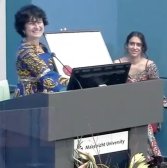 Anna: Highly esteemed opponent, thank you for this good question. I think it has to do with managers. Managers like linear approaches because they are manageable and controllable, easy to understand and easy to explain to someone who does not know the problem, and they are easy to control and to report. So, linear projects are very popular in management environments but also in international development cooperation, universities and everywhere else. But nowadays there is a growing awareness that projects are not linear at all. They are always complex. And you want, of course, to make them as simple as possible, but not too simple. When you start a project you need some decision-making ability to adjust whenever that is necessary. But if the control is too rigid, and if the budgets are too limiting, you simply cannot take the decisions that you need to take. In ICT projects, we work in flexible environments, with flexible systems. Adjusting ICTs to a low-resource environment is possible, it is even very much doable. The difficulty is more how to do it. But if the project management style is too rigid, using for example, using in ICT, the Waterfall model, or in International Development Cooperation, the Logical Framework Approach, then it is very difficult to adjust, and you end up with projects that are unwanted, or not sustainable.
Anna: Highly esteemed opponent, thank you for this good question. I think it has to do with managers. Managers like linear approaches because they are manageable and controllable, easy to understand and easy to explain to someone who does not know the problem, and they are easy to control and to report. So, linear projects are very popular in management environments but also in international development cooperation, universities and everywhere else. But nowadays there is a growing awareness that projects are not linear at all. They are always complex. And you want, of course, to make them as simple as possible, but not too simple. When you start a project you need some decision-making ability to adjust whenever that is necessary. But if the control is too rigid, and if the budgets are too limiting, you simply cannot take the decisions that you need to take. In ICT projects, we work in flexible environments, with flexible systems. Adjusting ICTs to a low-resource environment is possible, it is even very much doable. The difficulty is more how to do it. But if the project management style is too rigid, using for example, using in ICT, the Waterfall model, or in International Development Cooperation, the Logical Framework Approach, then it is very difficult to adjust, and you end up with projects that are unwanted, or not sustainable.Prof. Roel Wieringa: But suppose you would be intimately familiar with the local situation, it it then imaginable that you would still have a linear plan for your project?
Anna: Highly esteemed opponent, projects that are not very complex, you try to make them linear, but you must have the possibility to iterate, whenever necessary, so it is more the decision-making of the team that is important. But if you would create prototypes for ICT systems the way we did: these are very iterative from the start. You don’t know where you will end up. So the type of work we did was so open-ended that we did not know where it would end up. So we simple started somewhere and we tried something and we showed the people and we got feed-back, and that was an organic way to do it.
Prof. Roel Wieringa: So that is a very interesting situation, because I am not familiar with many sitations in which the sponsor would give money to a project and tell you “see what you can do with it”. So that was a very advantageous situation for you, I think. So, I am asking a comment on my following observation. So, I think in general a sponsor finances a project with a goal, and that goals is stated usually in advance. If that goal is not achieved, but something else is achieved, it is also good, but still, from a project management point of view, this will be probably seen as a failure, because the original goal was not achieved. I think this is almost unavoidable. Could you comment on this?
Anna: Highly esteemed opponent, yes, I can give you an example of a current work that we are doing with a donor agency. We have a very small fund. They want to have better trade of seeds in Mali, and their goal is to improve the seed trade and our goal is actually to make an information system that makes that possible, and which makes it possible to include people without Internet and without the ability to read text. So we are creating now a voice system to do that. They (the donor) are only interested in the result, and that is very good because they are giving us – as it is such a small budget — all freedom to find out how to do that. And our approach is agile and very collaborative with the farmers, but the donor agency does not see that. They only tell us that they want it to work next year in summer, because then the harvest starts and the seeds are sold. I think that is a good approach. The end goal is set, but how that goal is achieved, that is the freedom of, let’s say, the team. The team can find the best and the most adaptive way to achieve that goal.
Prof. Wieringa: I don’t know if there is time for another question?
Rector: I would like to give the floor to others, and then we could maybe come back to your question.
Prof. Dr. Saa Dittoh – Chair in Agriculture Development and Food Systems at the University for Development Studies in Ghana.
Prof. Saa Dittoh: Thank you very much Chair. Anna, thank you so much for coming this far. I want to thank Maastricht University for giving me this opportunity to be part of this wonderful time. I also want to acknowledge Hans and all the people that I know, Valentina and others. It is very good that we are having this meeting and Anna I congratulate you for how far you have come and for how far you defended yourself even up to now. Many things I wanted to talk about have already been taken up by the other questioners. But I still want to ask about collaboration with existing technologies. Can you clearly specify what kind of existing technologies there are in West Africa or the African region that are with ICT interventions to collaborate with.
Anna: Highly esteemed opponent, if I understood well your question, you asked me which technologies in West Africa we are including in the innovations we are trying to build. I think, we use whatever is there. So, when we go to a new region, and for example, we went to Burkina Faso and we asked people what they use and what they have. At that time it was simply the GSM phone that had been rolled out recently. People were happy with the GSM phone because they could talk to their family and friends and also with their business partners and this had facilitated their lives very much. So, we did not bring any hardware or any technology with us, we did noy transfer anything. We said let’s simply try to do something with what is already there. We just bring ideas and approaches from various perspectives, we use whatever you know about farming – because there were questions about market information systems — and we don’t know anything about African markets, but you do. So, if we put all that knowledge together, we can build a market information system together, based on what we know about ICT, based on what you know about African farming and about trade, and using what is locally available in terms of mobile technology. Together that is very complex. So, by putting this all together, we can make something which is really good. But without collaboration, this would not have happened, never. Especially not because the system was also made in local language, it was an extremely innovative system, combining several knowledge domains, but it worked. So, I think it is possible to combine several types of knowledge and different technologies, whatever is available, locally.
Prof. Saa: From what I am understanding of what you are saying, even local communication systems are to some extent basic ICTs. I agree with that very strongly. But I want to follow up with another question. You have talked a lot about sustainability. You tend to believe that collaborations are more sustainable than interventions. The way we do interventions now is not sustainable. Can you elaborate on that?
Anna: Highly esteemed opponent, in my thesis I compare intervention (and I give it this name actually) against collaboration, because collaboration is more equal. It is a way of exchanging information to achieve a more sustainable result because you follow the goal which is set by local people. Intervention is something that is defined from outside — that is how I have defined the term “intervention”. So, you take external goals and external decision-making to bring something into a region unfamilar to the one who takes the decision. I think, if you want to achieve sustainability, you can only do it through collaboration. It has the advantage of bringing together different knowledge domains which gives an innovative capacity that makes it possible to solve complex problems together, and that is what we want, for example with relation to food security, with relation to any big problem in which ICT can play a role. So, I think that collaboration in that sense leads to more sustainable solutions than an intervention that is set from outside, without full understanding of what local people really want. Does this answers a bit your question?
Prof. Saa Dittoh: Well, to some extent, but I really wanted you to talk a little more about how collaboration leads to sustainable business plans, about which you have also written a lot in your thesis.
Anna: Well, yes, the sustainability is one of the most important and most difficult parts of the whole ICT4D, to keep something alive after a project. We have worked on this, and we have looked at how local business could be part of a network in which, for example, an ICT system that is designed by the team in collaboration with the farmers, can be kept alive, and maintained over time, after the project funding has ended. Therefore you have to look into the network of partners and what they are exchanging with each other, because the system has to be in place and someone has to pay for it. So, someone has to be interested in what the system gives. Someone has to provide the service. We want that to be in the local situation, if possible, without external funds being brought in. Therefore you have to do what people really want, because if no value is produced by the technological solution we are trying to implement, it is not sustainable at all. Therefore, collaboration is necessary, otherwise you don’t know the operational goals of the stakeholders. So, you start with their operational goals, than you define what one could do with it, and if it is what people want, they will probably be interested in applying it and keeping it alive. We tested this, and it is possible. People are willing to pay for a system that provides them with the information they really want to have. The problem is of course then to make it technically sustainable, and that is still a challenge. We are still working on it, it is work in progress. But I think that without collaboration, simply by transferring knowledge and technology, you will have an unsustainable solution at the end. There are many examples of that in ICT4D.
Prof. Saa Dittoh: Thank you Anna, I am very satisfied and thank you Chair, for having given me this opportunity.
Rector: Thank you very much.
Prof. Dr. Cyrus Mody, Chair in History of Science, Technology and Innovation at Maastricht University.
Prof. Cyrus Mody: Dear candidate, thank you very much for the opportunity to read this impressive work of analysis and also this very engaging story of a personal journey. That makes it sound as if these are two separate things, but of course in the work itself they are very seemlessly integrated and mutually reenforcing. I think, especially in your part of critique, the whole thing is wonderfully questioning both with respect to what has been done before and with respect to your own practice. I very much appreciated the way you showed that there are no simple answers in a complex world, but with an open attitude, we can cope with complexity. So, my question starts from that complexity and the simplification that, maybe, inherently accompanies research and even design. So, you rightly critique linear models for oversimplifying and your approach certainly deals better with it, or acknowledges complexity much better, than linear models do. But even so, you do seem to need to apply some filters that abstract from a complex field, for example by identifying what counts as “local” as a “context” and in particular, who the stakehodlwers are, and who is involved in the collaborative process. To bring people into the collaboration, you seem to rely on thinks like focus groups, pre-assembled groups of people who are there when you arrive in a locale, or in attracting people into the collaboration in e.g. roadshows, all which are quite reasonable practices, I think. They are tried and true ways of forming ways of forms of collaborative design. But they are still forms of simplifications, of course, that might be without non-users — as mentioned in the work of your promotor– yet others are unable to participate, and they are excluded in some way. So, I think I can maybe glimpse in some ways how you would deal with this issue, but I would like to hear from you how you bridge between the complexity of the work we operate in and the simplification that is often necessary for research and design.
Anna: Highly esteemed oponent, thank you for your very interesting question. This is really at the heart of the ICT4D work that we do, which is to translate the complexity into something that is structured and that can be built. That is something that we do during workshops and also afterwards and it is extremely difficult, because when you arrive in a new area, there are so many things that you see, so many things that you observe, and you don’t know what is relevant and what not for your system. At the start everything is relevant, so you have to capture as much as possible, and we do that, we make film, we make pictures, we record everything, we talk to people, we have conversations, we do those focus group discussions. The amount of data we collect is huge, and we simply don’t know what the outcome of it will be. But then, after a few days, you start to see patterns in it, recurring patterns: these things are said many times, and these things are important. We are also with a team. We don’t go with two people but usually with five — they are all here — because there are so many perspectives. Different people see different things. We all make notes and we debrief every evening. After a few days, we see patterns and we start to make simplifications. You try to extract that information and you propose a certain solution, and you do that in the workshop, for example you say: “We could make an information system for animal health or seed information system”. You throw the idea in the group of farmers and we start to work on it. We make small breakout groups to discuss the possible solutions and what would be done with it and who would take care of it. Then you collect that information and gradually, during a workshop of five days — at the end you have a trip report and you have done a lot of discussion and debates — you come up with (and therefore we have the structured narrative format that I described in Chapter 6 of my thesis) how to structure all that unstructured information into a more structured format. Then you start to design your models, your interaction diagrams, your class diagrams, your use case diagrams, all the stuff that ICT people do. That is a way to come to a structure, from something that is very complex. But I must say that this work — the requirements engineering practices — already exist. This is done by requirements engineers who do this work, for example, in the Netherlands, when you go to a customer. But if you do this work in rural Africa, your knowledge gaps are much bigger and the context is much more complex, so this is a much harder task, than when you do this in your own culture and in your own language. So, yes. I think that a very important part of our approach is really how you do this. A lot of it is our experience, and I have tried to write down how that was done, but you can do it much more detailed, I think. So there is a lot of more work to do in this area. This is just a start. I hope that this answers your question?
Prof. Cyrus Mody: Well, I could follow it. This is a very good description of how one simplifies from complexity of what is said, but my question was really more about who is doing it. The process how one identifies who the possible stakeholders are and who gets included in things like these workshops that you describe.
Anna: Well, the stakeholder analysis is done at the start, but there is always a project in which this is done. So, for example, we work with a farmer organization in Mali. We have already worked with them for a long time because they asked us to work with them. So, in the first workshop already we write down who the stakeholders are, of this project and what do they want. For example, they are cereal seed farmers. And what are their operational goals? Well: they want to sell seeds. There are smaller seed farmers, there are bigger seed farmers, the ones who buy seeds, those who sell seeds. In the beginning we do not understand anything about the work flows, but simply by having these conversations you try to build up a model of how the local organization is done. And that is necessary for your system. So, for us as outsiders, we become, at the end, small experts on this local knowledge. We have to understand in order to propose an ICT system that might be of help for the farmers. Does this answer a bit your question?
Prof. Cyrus Mody: Yes, clear now, thank you.
Rector: Thank you so much.
Prof. Dr. Valentina Mazzucato, Chair in Globalization and Development at Maastricht University.
Prof. Valentina Mazzucato: Thank you. Dear candidate, it was a pleasure to read your thesis, not only because it is well-written and reports on over a decade of very carefully crafted collaborative interventions, but also because for me it was a tour down memory lane. I conducted my PhD research about twenty years ago in a region just next to where you were busy in Burkina Faso. I have even studied some of the local innovations that you talk about, the zaï technique. I know some of the people that are in your thesis, so it was really wonderful, and reminding me of a lot of things. And, in my thesis, together with a soil scientist — I am a social scientist — we concluded that actually the models that are used by soil scientists were just not getting it right, because they were developed in experimental stations, in highly controlled environments that had nothing to do with the vagueries that farmers face on a day to day level. So it was very important to understand the local context. Maybe you hear some echos with your work here. But here is where I want to push you a little bit further. I think my colleagues were going in that direction, but I like to push you a little bit further, and that is the question of power. Because as much as we want to overcome our power imbalances. For as much as we are careful and thoughtful in how we approach collaboration, we cannot deny that we are embedded in power relationships, and even in our collaborative and thoughtful and humble exercizes, we have the money, and the money comes from somewhere, and you mention this as a critique of the linear model. You are in a way carefully trying to do what ultimately the funders want to to do. Maybe you find ways, creative ways as you do, but who is setting the agenda? It is the funders and the projects. And at the same time in Chapter 4 you mention a lot of interesting regreening exercises, that when you actually look at th every essence of what they are exercises in empowering farmers to have the power over their own resources. That is what you report on. And also in Chapter 11 where you talk about mobile phones and farmers, what you are talking about is the very creative ways that farmers and local mobile phone providers find to meet and suit local needs. So, my question is: given that we cannot avoid these power imbalances, how can any outside intervention, even a collaborative one, really do justice to empower farmers over their own resources, with their own indigenous knowledge? I am not at all criticizing you approach, it exudes careful thoughtfulness, but I would like you to reflect a little bit on your own situatedness in this power imbalance.
Anna: Highly esteemed opponent, thank you very much for this very interesting question, and a very important one. The point of power structures is so embedded in international development cooperation and of course questions of poverty and wealth. We are talking to people who are very poor and we try to do something that serves their needs, but we are also aware of the fact that there are donor agencies and power structures: there are countries that are sending money — e.g. the Netherlands — and they set the agendas because they come with the funds. And we are coming from the Global North, we are working at a nice university, we have a better salary than the people we work with, we are in airconditioned hotels usually, which sets of course a difference. Meanwhile, you can also ask, if we would not do this work, would that make the world a more equal place? So, I think that despite the power imbalances, we try, with ICTs, to provide as much as possible capabilities for empowerment. So, for example the mobile phone, that has been brought by telecom companies from the Global North, as a huge intervention, has had many positive aspects. Of course we are critical of the telecom business models, because they are extracting a lot of money out of the African continent, and poor people are paying for that — the fortune at the bottom of the pyramid — and private companies are having a big profit from that. On the other hand, many Africans are very happy with the mobile phone, the simple voice-based GSM phone, which has brough a lot of empowerment for people, a lot of facilities to communicate. So I think it is a double-sided sword, development, on one hand there are good aspects, but on the other hand there are very negative aspects, of which we must be aware of.
Hora est!
Read the thesis.
